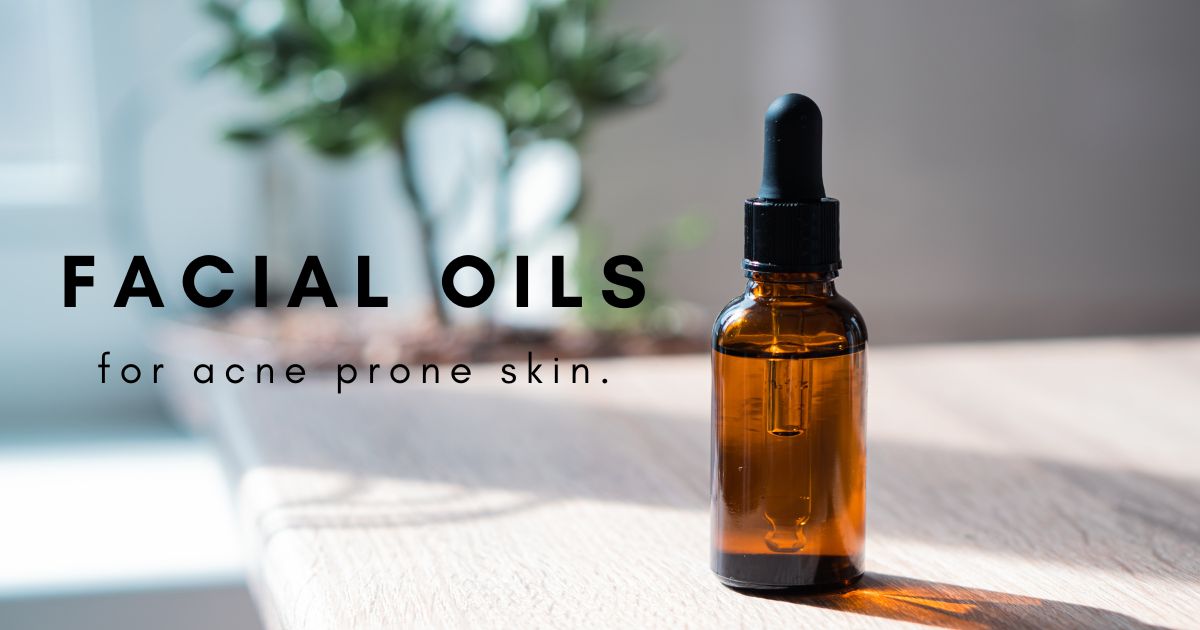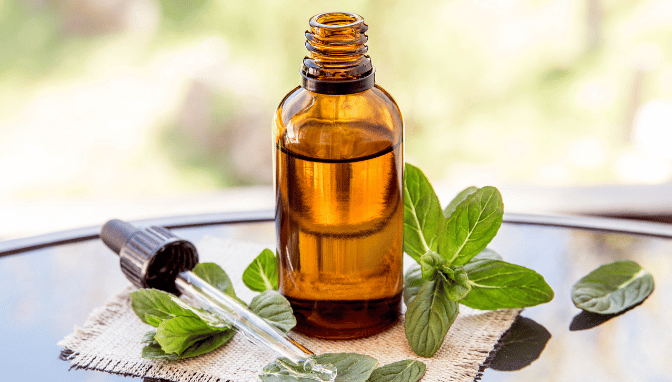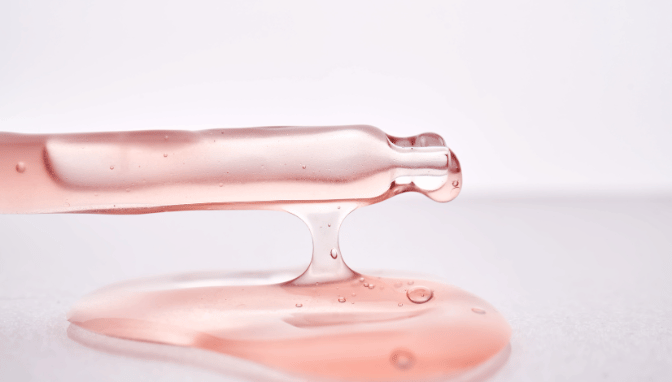 When it comes to skincare, hearing about oils might make you hesitate, especially if you’re dealing with acne. But guess what? Facial oils can actually be helpful for acne prone skin if you pick the right ones and use them the right way.
When it comes to skincare, hearing about oils might make you hesitate, especially if you’re dealing with acne. But guess what? Facial oils can actually be helpful for acne prone skin if you pick the right ones and use them the right way.
Acne can feel like a never-ending struggle, especially if your skin tends to be oily or a mix of oily and dry. The idea of putting oil on your already troubled skin might sound scary. But as we learn more about skincare, we’re finding out that some facial oils can actually do wonders for acne.
In this article, we’re going to clear up the confusion about using facial oils for acne prone skin. We’ll talk about what acne is, how facial oils can help, and how to choose the best oils for your skin.
So, if you’ve been nervous about trying facial oils for acne prone skin because you’re worried they’ll make your acne worse, don’t worry anymore. Let’s explore together how facial oils can be your skin’s new best friend in the fight against acne.
About Acne-Prone Skin

If your skin is acne prone, it’s more likely to develop pimples, blackheads, and other blemishes. These pesky breakouts can make your skin feel oily, irritated, and sometimes even painful.
Acne happens when things like too much oil (sebum), clogged pores, and bacteria team up to wreak havoc on your skin. When your skin makes too much oil, it can mix with dead skin cells and block your pores, creating the perfect environment for bacteria to grow. This can lead to frustrating pimples and blackheads.
To keep acne at bay, it’s essential to use skincare products that won’t clog your pores. That’s where non-comedogenic products come in. These are specially designed to help prevent acne by not blocking your pores, which can make your breakouts worse. So, when you’re choosing skincare products, look for ones labeled “non-comedogenic” to give your skin the best chance of staying clear and healthy.
Table of Contents
The Role of Facial Oils

Facial oils can actually be really helpful for acne-prone skin, despite what you might have heard. They offer several benefits that can improve the overall health and appearance of your skin.
First, certain facial oils can help regulate sebum production. When your skin produces too much oil, it can lead to clogged pores and breakouts. But using the right facial oils can actually help balance out your skin’s oil production, keeping it in check and reducing the likelihood of breakouts.
Additionally, facial oils are great for hydrating your skin. Even if you have oily skin, it’s important to keep it hydrated to prevent it from overproducing oil. Some facial oils have lightweight textures that absorb quickly into the skin, providing hydration without leaving a greasy residue.
Furthermore, certain oils contain essential nutrients that can nourish your skin and support its overall health. For example, oils rich in antioxidants can help protect your skin from environmental damage and premature aging.
Despite the common misconception, facial oils don’t always worsen acne. In fact, many oils have properties that can actually improve acne-prone skin. Scientific evidence and expert opinions support the idea that the right facial oils can be beneficial for acne-prone skin. It’s all about choosing oils that are non-comedogenic and suitable for your skin type.
So, don’t be afraid to incorporate facial oils for acne prone skin into your routine. With the right oils and proper usage, you can enjoy the many benefits they offer without worrying about worsening your acne.
Choosing the Right Facial Oils for Acne Prone skin

When it comes to selecting facial oils for acne prone skin, it’s crucial to opt for non-comedogenic oils that won’t clog your pores or exacerbate breakouts. Here’s a comprehensive list of facial oils that are suitable for acne-prone skin, along with their key properties and skincare benefits:
Jojoba Oil
- Comedogenic rating: 2
- Jojoba oil closely resembles the skin’s natural sebum, making it an excellent choice for controlling oil production.
- It’s lightweight, absorbs easily into the skin, and helps balance sebum levels without clogging pores.
- Suitable for all skin types, including oily and acne-prone skin.
Squalane Oil
- Comedogenic rating: 0
- Squalane oil is highly moisturizing and non-greasy, making it ideal for acne-prone skin.
- It helps improve skin elasticity, reduce the appearance of fine lines and wrinkles, and soothe inflammation.
- Suitable for all skin types, including sensitive and acne-prone skin.
Tea Tree Oil
- Comedogenic rating: 2
- Tea tree oil has natural antibacterial and anti-inflammatory properties, making it effective against acne-causing bacteria.
- It helps reduce redness, inflammation, and blemishes while promoting clearer skin.
- Dilute tea tree oil with a carrier oil before applying it to the skin to avoid irritation.
Rosehip Seed Oil
- Comedogenic rating: 1
- Rosehip seed oil is rich in vitamins, antioxidants, and essential fatty acids that promote skin regeneration and repair.
- It helps fade acne scars, hyperpigmentation, and uneven skin tone while hydrating and nourishing the skin.
- Suitable for all skin types, including mature and acne-prone skin.
Grapeseed Oil
- Comedogenic rating: 2
- Grapeseed oil is lightweight, non-greasy, and easily absorbed into the skin.
- It contains antioxidants and anti-inflammatory properties that help soothe and protect the skin.
- Grapeseed oil is suitable for oily and acne-prone skin, as it helps regulate oil production without clogging pores.
When selecting facial oils for acne prone skin, consider your individual skin type and concerns. If you have oily or acne-prone skin, opt for lighter oils that won’t feel heavy or greasy on the skin. Conduct patch tests before applying new oils to your face to ensure compatibility and minimize the risk of irritation. Experiment with different oils to find the ones that work best for your skin, and incorporate them into your skincare routine accordingly.
Best Practices and Tips for Using Facial Oils

Safely and Effectively Using Facial Oils
- When using facial oils for acne prone skin, it’s crucial to prioritize safety and effectiveness. Ensure that the oils you choose are suitable for your skin type and concerns, and always check for any potential allergens or irritants in the ingredient list.
Proper Application Techniques
- Determine the optimal time to apply facial oils based on your skincare routine. Generally, applying oils after cleansing and toning while your skin is still slightly damp can help lock in moisture more effectively.
- Start with a small amount of oil, typically 2-3 drops, and gently massage it into your skin using upward and outward motions. Allow the oil to fully absorb before applying additional skincare products.
Patch Testing New Oils
- Before incorporating a new facial oil into your routine, perform a patch test to assess your skin’s reaction. Apply a small amount of the oil to a small area of your skin, such as the inner forearm, and observe for any signs of irritation or allergic reactions for at least 24 hours.
- If no adverse reactions occur, you can proceed with incorporating the oil into your skincare routine gradually to monitor its effects on your skin.
Adjusting Skincare Routines as Needed
- Pay attention to how your skin responds to the facial oils you use. If you notice any adverse reactions or changes in your skin’s condition, consider adjusting your skincare routine accordingly.
- Be mindful of environmental factors, seasonal changes, and hormonal fluctuations, as these can impact your skin’s needs and the effectiveness of certain skincare products, including facial oils.
By following these best practices and tips for using facial oils for acne prone skin, you can ensure a safe and effective skincare experience while reaping the numerous benefits they offer for your skin’s health and appearance.
READ MORE : 10 Types Of Face Massage Tools For That Radiant Glow
Conclusion
So, to wrap things up, let’s go over what we’ve learned about facial oils for acne prone skin:
- Facial oils can help acne-prone skin. It’s not just a myth! When you pick the right ones, they can actually balance your skin’s oil, hydrate it, and give it essential nutrients without making your acne worse.
- Knowing your skin is important. We’ve talked about what makes skin prone to acne and why it happens, like too much oil and clogged pores. Using products that won’t block your pores is key to keeping acne in check.
- We’ve shared some great facial oils to try. There’s jojoba oil, squalane oil, tea tree oil, rosehip seed oil, and grapeseed oil. Each has its own special benefits for acne prone skin, like fighting bacteria and soothing redness.
- We’ve also given you some tips for using facial oils safely and effectively. Try them on a small part of your skin first and gradually add them to your routine. Your skin might need some time to get used to them!
So, remember, facial oils can be your skin’s friend if you choose wisely and use them the right way. Don’t be afraid to try different ones to see what works best for your skin. Your journey to healthier, clearer skin starts with finding the right products for you!
Frequently Asked Questions
Can acne-prone skin use facial oil?
Yes, acne-prone skin can benefit from certain facial oils, especially non-comedogenic ones that won’t clog pores.
Which is the best facial oil for oily acne-prone skin?
Squalane oil is a lightweight, non-greasy option ideal for oily, acne-prone skin.
What face oil is best for acne scars?
Rosehip seed oil is rich in vitamins and antioxidants, known to help fade acne scars and promote skin regeneration.
What oils should I avoid for acne?
Avoid heavy oils like coconut oil and mineral oil, which can potentially clog pores and worsen acne.
Which oils don’t cause acne?
Non-comedogenic oils like jojoba, squalane, and grapeseed are less likely to cause acne due to their lighter textures and pore-friendly properties.
What homemade oil is good for acne?
Tea tree oil, when diluted with carrier oil, is a popular natural remedy for acne due to its antibacterial and anti-inflammatory properties.
Is oil bad for hormonal acne?
Not necessarily. Some oils can actually help balance sebum production and reduce inflammation, benefiting hormonally acne-prone skin.
What oils block pores?
Heavy oils like coconut oil and mineral oil are more likely to block pores and can exacerbate acne.